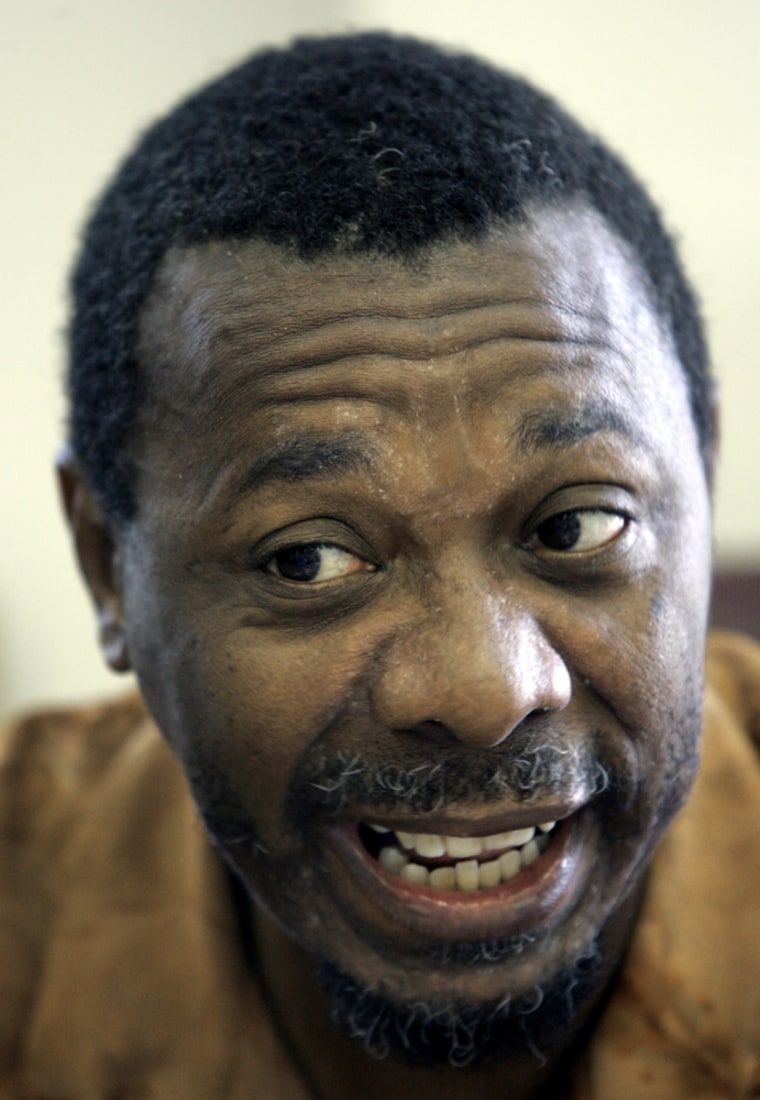Ike Brown is a legend in Mississippi politics, a fast-talking operative both loved and hated for his ability to turn out black voters and get his candidates into office.
That success has also landed him at the heart of a federal lawsuit that’s about to turn the Voting Rights Act on its head.
For the first time, the Justice Department is using the 1965 law to allege racial discrimination against whites.
Brown, head of the Democratic Party in Mississippi’s rural Noxubee County, is accused of waging a campaign to defeat white voters and candidates with tactics including intimidation and coercion. Also named in the lawsuit is Circuit Clerk Carl Mickens, who has agreed to refrain from rejecting white voters’ absentee ballots considered defective while accepting similar ballots from black voters.
Brown shakes off the allegations.
“They’ve been trying to target me for years, the attorney general and all them, because we’re so successful,” the 52-year-old says. “Hey, if you’re a failure, nobody will mess with you. But we’re successful in east Mississippi.”
The Justice Department complaint says Brown and those working with him “participated in numerous racial appeals during primary and general campaigns and have criticized black citizens for supporting white candidates and for forming biracial political coalitions with white candidates.”
Changes in Noxubee County
Noxubee County — a rural area along the Alabama line named for a Choctaw word meaning “stinking water” — has a population of 12,500, 69 percent black and 30 percent white.
Whites once dominated county politics here, but now only one white person holds countywide office, and he says Brown tried to recruit an out-of-county black candidate to run against him three years ago.
The federal case against Brown, scheduled for trial this fall, represents a change in direction in the use of the Voting Rights Act, says Jon Greenbaum, director of the voting rights project for the Washington-based Lawyers Committee for Civil Rights Under Law.
The law was written to protect racial minorities in the 1960s when Mississippi and other Southern states strictly enforced segregation.
“The main concern we have in the civil rights community isn’t necessarily that that DOJ brought this case,” Greenbaum says. “It’s that the department is not bringing meritorious cases on behalf of African-American and Native American voters.”

Justice Department records show the department’s last voting-rights case alleging discrimination against black voters was filed in 2001. Since then, six cases have been brought on behalf of voters of Hispanic or Asian descent in five states — plus the case involving white voters in Mississippi.
Justice Department spokesman Eric Holland would not comment on the case, but provided stacks of documents, including the consent decree signed by Mickens, Noxubee County’s chief elections officer.
Brown, a former tax preparer, served 21 months in prison in the 1990s on a felony conviction of preparing fraudulent federal income-tax returns. He retained his right to vote. The same federal judge who handled his earlier trial is now overseeing the Justice Department case.
“This case is real simple,” Brown says, stretching back in a maroon chair during an interview in Mickens’ office, where voter-registration records are kept. “Find me one white person that was discriminated against.”
Prosecutor objects
The main white person who makes the claim is Ricky Walker, the county prosecuting attorney who believes Brown recruited an opponent for him simply because he’s white, an action Walker called “racist.”
Walker says that when he qualified to run again in 2003, Brown brought in a black lawyer from another part of the state to run against him. A circuit judge found that the lawyer, Winston James Thompson III, had not established residency, and Thompson was not allowed on the ballot.
“I think he just wanted to have a person in that office that he had some control over, a black person,” Walker says.
Brown, chairman of the Noxubee County Democratic Party since 2000, says Thompson recruited himself.
Republican chastises Justice Dept.
Brown’s defense attorney, prominent black Republican Wilbur Colom, disagrees with Brown’s political views but defends his right to speak.
“I think Ike does play race politics,” Colom says. “He is a black political leader who fights the fight like we were still in the 1970s. He doesn’t recognize the progress that we have made.”
But Colom criticizes the Justice Department for filing a complaint against a black political consultant while ignoring similar behavior by white political operatives in Mississippi.
“It has overtones of politics and that’s the wrong road for Civil Rights Division of the Justice Department,” the attorney says. “It’s going to destroy their credibility the next time they ask black people to listen to them.”
‘Voter suppression’?
Democratic state Rep. Reecy Dickson says Brown is a political celebrity who evokes strong reactions from friends and foes. Brown moved to Noxubee County in 1979 to work on Dickson’s campaign for county superintendent of education and later helped her bid for the Legislature.
Asked if Brown is being fair, she smiles slightly.
“The question comes down to: What is fair in politics?” Dickson says. “I heard someone say once, ‘Fair died a long time ago.”’
Brown sees the Justice Department case as whites dissatisfied with growing black political power in east Mississippi — particularly his power. He says the lawsuit is a way to muddy his name.
“It’s all about voter suppression,” he says.
